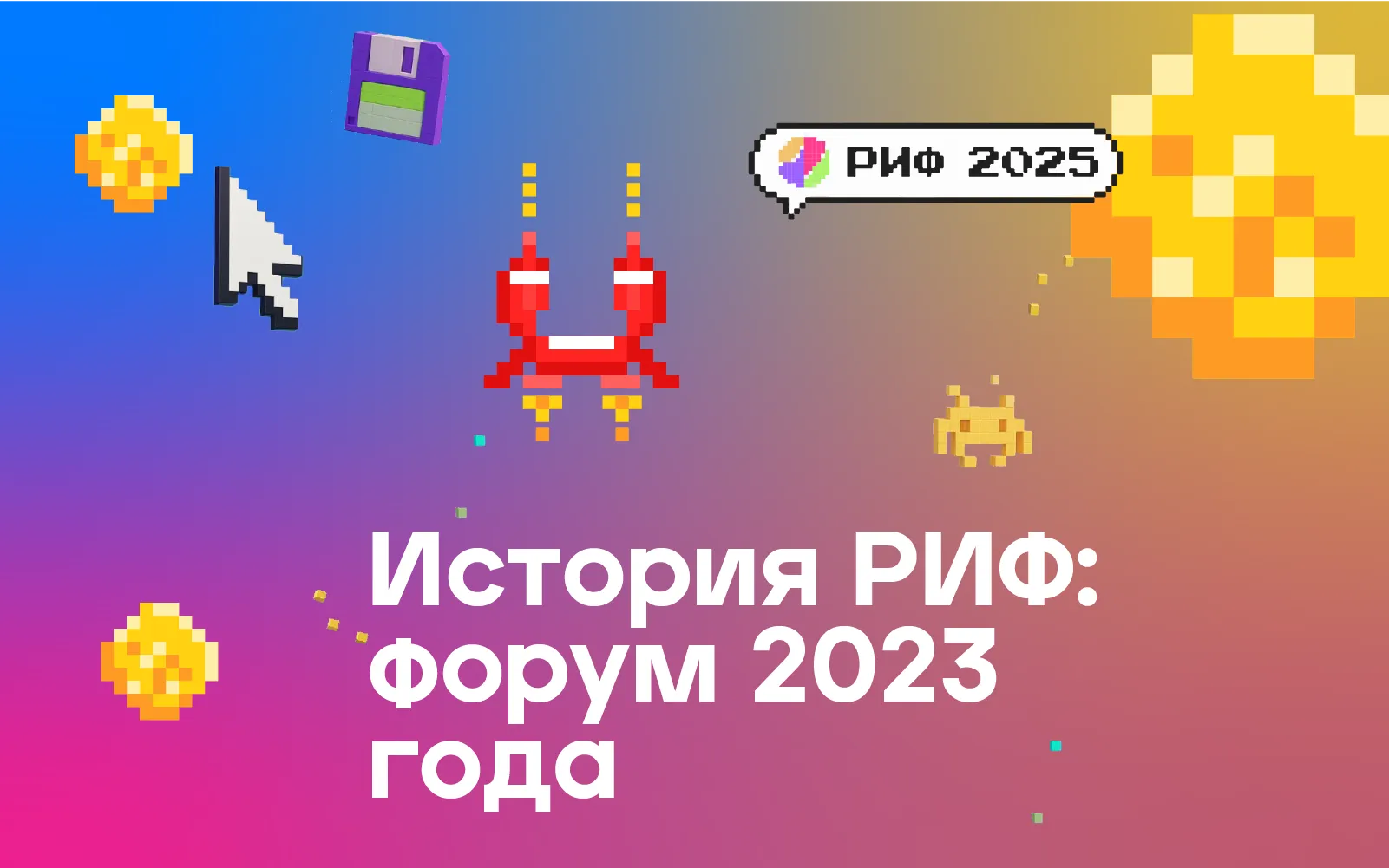RIF 2023: Just Work!
From May 24 to 26, the Russian Internet Forum once again transformed Lesnye Dali into the country’s largest IT hub. With more than 7,500 participants and over 600 expert speakers, RIF 2023 doubled down on its mission: to chart Russia’s technological future, unite the digital sector, and turn uncertainty into opportunity.

Back to the Future
The forum’s central theme was technological leadership and industry unity, captured by keywords like partnership, consolidation, networking, and community.
Three days of panels and roundtables explored IT workforce challenges, industry support measures, digital platforms, transformation strategies, and both established and emerging markets.
The mission was clear: build a vision of the future anchored in robust internet services, ecosystems, IT companies, and innovation—and, crucially, in skilled IT and digital professionals. Ahead of the forum, RAEC surveyed IT specialists, finding strong demand for policies like draft deferments and zero profit-tax rates for IT companies. While many expressed career anxiety, nearly half felt confident about the domestic sector’s future, and about a third welcomed new challenges with optimism.
Market Directions
New RAEC research on Runet’s economy—covering 17 internet markets across marketing & advertising, e‑commerce, infrastructure, and digital content—will help shape high‑level policy. The forum’s standout ideas will feed directly into the agendas of the CIPR and St. Petersburg International Economic Forum. Addressing career concerns, the 'E+Talent' conference focused on recruiting and developing IT professionals. Keynote speaker Maksut Shadaev, Minister of Digital Development, discussed ChatGPT’s potential and the continuing issue of social network restrictions. Exhibits highlighted homegrown alternatives to departed foreign services, while media hubs, sports zones, and networking spaces kept energy high.
Expected and Unexpected
A new roundtable, 'Lost Doesn’t Mean Gone,' aligned with International Missing Children’s Day on May 25 and brought together tech experts, government representatives, and volunteer groups such as the Liza Alert search-and-rescue team.
The 'Human-Centered State' session showcased how analyzing citizen feedback from social media can improve public services and governance. Inclusion took center stage with real-life case studies on making digital products accessible to people with disabilities—revealing both social impact and business potential.
A startup pitch session connected entrepreneurs with expert feedback, pilot opportunities, and funding offers. Media professionals urged colleagues to embrace change in a lively debate titled 'Stop Whining, Just Work!'—arguing that in turbulent times, demand for timely information only grows. Concerns over VPN use surfaced in 'Risks of Online Anonymity,' where State Duma deputy Anton Gorelkin described VPNs as U.S. defense inventions and warned that free services profit from user data.
Experts concluded that Russia should support creation of a national VPN solution.
Where the Money Flows
The opening panel on 'Building Technological Sovereignty' explored how IT weathered the previous year, pinpointed acute skill shortages, and, of course, followed the money. Runet’s economy outperformed pessimistic 2022 forecasts thanks to government support and tax incentives.
Growth came mainly from e‑commerce and infrastructure, while marketing and digital content dipped. Still, RAEC forecasts a 29 % expansion in 2023—comparable in size to Kazakhstan’s GDP—and expects e‑commerce to reach a 22 % market share by 2025. Courier delivery grew 25 % in 2022, with last‑mile logistics now 21 % of all urban freight. Nearly half of e‑commerce purchases occur on marketplaces, and food delivery dominates the sector.
Talent Rules
Relocation reshaped the talent landscape. The sharpest shortage is in cybersecurity, cited by 54 % of companies, along with demand for white‑hat hackers and developers for domestic mobile operating systems. According to the Ministry of Digital Development, about 100,000 programmers left Russia after the start of the special military operation, 80 % relocating to friendly countries while continuing to work for Russian firms. By February 2023, 60 % had returned.
A Russian Wikipedia
At the panel 'ChatGPT and Others—Job Killer or Opportunity?,' organizers announced 'Ruviki,' a new Russian online encyclopedia set to launch within a month. Participants argued that Wikipedia contains biased articles and a noticeable ideological slant. The domestic alternative aims to fill that gap and could eventually replace Wikipedia in Russia.
Conclusion
By the forum’s end, many attendees said they had clarified their goals and recalibrated strategies—both within their own companies and across entire industry segments.

